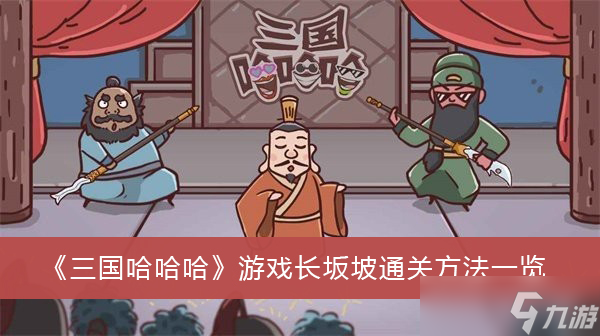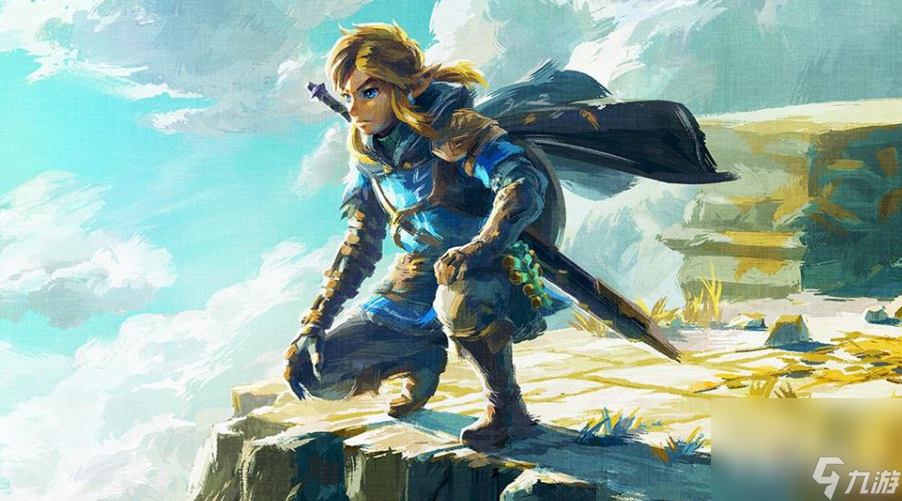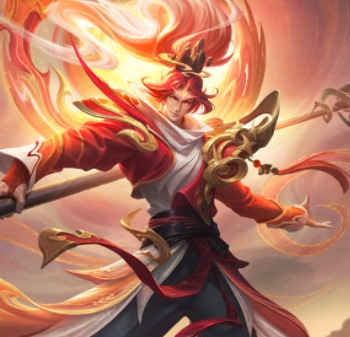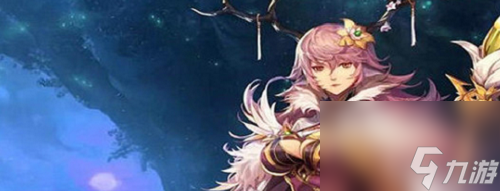BeadsRunner好玩吗 BeadsRunner玩法简介,
【双语阅读】追风筝的人 The Kite Runner
微信搜索【点学英语】,使用微信小程序,阅读功能更强大!
双语对照阅读,点击单词可查看中文翻译。
追风筝的人 The Kite Runner
作者:卡勒德·胡赛尼 (Khaled Hosseini) <阿富汗斯坦>
阿富汗富家少爷阿米尔与仆人哈桑情同手足。一场风筝比赛后,哈桑为给阿米尔逐回落下的风筝,受到阿塞夫的侮辱,阿米尔却没救哈桑。因为愧疚他与哈桑远离后分离。后战争爆发,阿米尔逃到美国,多年后,为救赎,他把哈桑的儿子带到美国。
第一章
I became what I am today at the age of twelve, on a frigid overcast day in the winter of 1975. I remember the precise moment, crouching behind a crumbling mud wall, peeking into the alley near the frozen creek. That was a long time ago, but it's wrong what they say about the past, I've learned, about how you can bury it. Because the past claws its way out. Looking back now, I realize I have been peeking into that deserted alley for the last twenty-six years.
我成为今天的我,是在1975年某个阴云密布的寒冷冬日,那年我十二岁。我清楚地记得当时自己趴在一堵坍塌的泥墙后面,窥视着那条小巷,旁边是结冰的小溪。许多年过去了,人们说陈年旧事可以被埋葬,然而我终于明白这是错的,因为往事会自行爬上来。回首前尘,我意识到在过去二十六年里,自己始终在窥视着那荒芜的小径。
One day last summer, my friend Rahim Khan called from Pakistan. He asked me to come see him. Standing in the kitchen with the receiver to my ear, I knew it wasn't just Rahim Khan on the line. It was my past of unatoned sins. After I hung up, I went for a walk along Spreckels Lake on the northern edge of Golden Gate Park. The early-afternoon sun sparkled on the water where dozens of miniature boats sailed, propelled by a crisp breeze. Then I glanced up and saw a pair of kites, red with long blue tails, soaring in the sky. They danced high above the trees on the west end of the park, over the windmills, floating side by side like a pair of eyes looking down on San Francisco, the city I now call Home. And suddenly Hassan's voice whispered in my head: "For you, a thousand times over". Hassan the harelipped kite runner.
今年夏季的某天,朋友拉辛汗从巴基斯坦打来电话,要我回去探望他。我站在厨房里,听筒贴在耳朵上,我知道电话线连着的,并不只是拉辛汗,还有我过去那些未曾赎还的罪行。挂了电话,我离开家门,到金门公园北边的斯普瑞柯湖边散步。晌午的骄阳照在波光粼粼的水面上,数十艘轻舟在和风的吹拂中漂行。我抬起头,望见两只红色的风筝,带着长长的蓝色尾巴,在天空中冉冉升起。它们舞动着,飞越公园西边的树林,飞越风车,并排飘浮着,如同一双眼睛俯视着旧金山,这个我现在当成家园的城市。突然间,哈桑的声音在我脑中响起:为你,千千万万遍。哈桑,那个兔唇的哈桑,那个追风筝的人。
I sat on a park bench near a willow tree. I thought about something Rahim Khan said just before he hung up, almost as an after thought. "There is a way to be good again". I looked up at those twin kites. I thought about Hassan. Thought about Baba. Ali. Kabul. I thought of the life I had lived until the winter of 1975 came and changed everything. And made me what I am today.
我在公园里柳树下的长凳坐下,想着拉辛汗在电话中说的那些事情,再三思量。那儿有再次成为好人的路。我抬眼看看那比翼齐飞的风筝。我忆起哈桑。我缅怀爸爸。我想到阿里。我思念喀布尔。我想起曾经的生活,想起1975年那个改变了一切的冬天。那造就了今天的我。
第二章
When we were children, Hassan and I used to climb the poplar trees in the driveway of my father's house and annoy our neighbors by reflecting sunlight into their Homes with a shard of mirror. We would sit across from each other on a pair of high branches, our naked feet dangling, our trouser pockets filled with dried mulberries and walnuts. We took turns with the mirror as we ate mulberries, pelted each other with them, giggling, laughing; I can still see Hassan up on that tree, sunlight flickering through the leaves on his almost perfectly round face, a face like a Chinese doll chiseled from hardwood: his flat, broad nose and slanting, narrow eyes like bamboo leaves, eyes that looked, depending on the light, gold, green, even sapphire. I can still see his tiny low-set ears and that pointed stub of a chin, a meaty appendage that looked like it was added as a mere afterthought. And the cleft lip, just left of midline, where the Chinese doll maker's instrument may have slipped; or perhaps he had simply grown tired and careless.
小时候,爸爸的房子有条车道,边上种着白杨树,哈桑和我经常爬上去,用一块镜子的碎片把阳光反照进邻居家里,惹得他们很恼火。在那高高的枝桠上,我们相对而坐,没穿鞋子的脚丫晃来荡去,裤兜里满是桑椹干和胡桃。我们换着玩那破镜子,边吃桑椹干,边用它们扔对方,忽而吃吃逗乐,忽而开怀大笑。我依然能记得哈桑坐在树上的样子,阳光穿过叶子,照着他那浑圆的脸庞。他的脸很像木头刻成的中国娃娃,鼻子大而扁平,双眼眯斜如同竹叶,在不同光线下会显现出金色、绿色,甚至是宝石蓝。我依然能看到他长得较低的小耳朵,还有突出的下巴,肉乎乎的,看起来像是一团后来才加上去的附属物。他的嘴唇从中间裂开,这兴许是那个制作中国娃娃的工匠手中的工具不慎滑落,又或者只是由于他的疲倦和心不在焉。
Sometimes, up in those trees, I talked Hassan into firing walnuts with his slingshot at the neighbor's one-eyed German shepherd. Hassan never wanted to, but if I asked, "really" asked, he wouldn't deny me. Hassan never denied me anything. And he was deadly with his slingshot. Hassan's father, Ali, used to catch us and get mad, or as mad as someone as gentle as Ali could ever get. He would wag his finger and wave us down from the tree. He would take the mirror and tell us what his mother had told him, that the devil shone mirrors too, shone them to distract Muslims during prayer. "And he laughs while he does it,? he always added, scowling at his son.
有时在树上我还会怂恿哈桑,让他用弹弓将胡桃射向邻家那独眼的德国牧羊犬。哈桑从无此想法,但若是我要求他,真的要求他,他不会拒绝。哈桑从未拒绝我任何事情。弹弓在他手中可是致命的武器。哈桑的父亲阿里常常逮到我们,像他那样和蔼的人,也被我们气得要疯了。他会张开手指,将我们从树上摇下来。他会将镜子拿走,并告诉我们,他的妈妈说魔鬼也用镜子,用它们照那些穆斯林信徒,让他们分心。“他这么做的时候会哈哈大笑。”他总是加上这么一句,并对他的儿子怒目相向。
"Yes, Father," Hassan would mumble, looking down at his feet. But he never told on me. Never told that the mirror, like shooting walnuts at the neighbor's dog, was always my idea.
“是的,爸爸。”哈桑会咕哝着,低头看自己的双脚。但他从不告发我,从来不提镜子、用胡桃射狗其实都是我的鬼主意。
The poplar trees lined the redbrick driveway, which led to a pair of wrought-iron gates. They in turn opened into an extension of the driveway into my father's estate. The house sat on the left side of the brick path, the backyard at the end of it.
那条通向两扇锻铁大门的红砖车道两旁植满白杨。车道延伸进敞开的双扉,再进去就是我父亲的地盘了。砖路的左边是房子,尽头则是后院。
Everyone agreed that my father, my Baba, had built the most beautiful house in the Wazir Akbar Khan district, a new and affluent neighborhood in the northern part of Kabul. Some thought it was the prettiest house in all of Kabul. A broad entryway flanked by rosebushes led to the sprawling house of marble floors and wide windows. Intricate mosaic tiles, handpicked by Baba in Isfahan, covered the floors of the four bathrooms. Gold-stitched tapestries, which Baba had bought in Calcutta, lined the walls; a crystal chandelier hung from the vaulted ceiling.
人人都说我父亲的房子是瓦兹尔·阿克巴·汗区最华丽的屋宇,甚至有人认为它是全喀布尔最美观的建筑。它坐落于喀布尔北部繁华的新兴城区,入口通道甚为宽广,两旁种着蔷薇;房子开间不少,铺着大理石地板,还有很大的窗户。爸爸亲手在伊斯法罕(Isfaham,伊朗中部城市)选购了精美的马赛克瓷砖,铺满四个浴室的地面,还从加尔各答(Calcutta,印度城市)买来金丝织成的挂毯,用于装饰墙壁,拱形的天花板上挂着水晶吊灯。
Upstairs was my bedroom, Baba's room, and his study, also known as "the smoking room", which perpetually smelled of tobacco and cinnamon. Baba and his friends reclined on black leather chairs there after Ali had served dinner. They stuffed their pipes-except Baba always called it "fattening the pipe" -- and discussed their favorite three topics: politics, Business, soccer. Sometimes I asked Baba if I could sit with them, but Baba would stand in the doorway. "Go on, now," he'd say. "This is grown-ups time. Why don't you go read one of those books of yours?" He'd close the door, leave me to wonder why it was always grown-ups? time with him. I'd sit by the door, knees drawn to my chest. Sometimes I sat there for an hour, sometimes two, listening to their laughter, their chatter.
楼上是我的卧房,还有爸爸的书房,它也被称为“吸烟室”,总是弥漫着烟草和肉桂的气味。在阿里的服侍下用完晚膳之后,爸爸跟他的朋友躺在书房的黑色皮椅上。他们填满烟管——爸爸总说是“喂饱烟管”,高谈阔论,总不离三个话题:政治,生意,足球。有时我会求爸爸让我坐在他们身边,但爸爸会堵在门口。“走开,现在就走开,”他会说,“这是大人的时间。你为什么不回去看你自己的书本呢?”他会关上门,留下我独自纳闷:何以他总是只有大人的时间?我坐在门口,膝盖抵着胸膛。我坐上一个钟头,有时两个钟头,听着他们的笑声,他们的谈话声。
The living room downstairs had a curved wall with custombuilt cabinets. Inside sat framed family pictures: an old, grainy photo of my grandfather and King Nadir Shah taken in 1931, two years before the king's assassination; they are standing over a dead deer, dressed in knee-high boots, rifles slung over their shoulders. There was a picture of my parents' wedding night, Baba dashing in his black suit and my mother a smiling young princess in white. Here was Baba and his best friend and Business partner, Rahim Khan, standing outside our house, neither one smiling-I am a baby in that photograph and Baba is holding me, looking tired and grim. I'm in his arms, but it's Rahim Khan's pinky my fingers are curled around.
楼下的起居室有一面凹壁,摆着专门订做的橱柜。里面陈列着镶框的家庭照片:有张模糊的老照片,是我祖父和纳迪尔国王NadirShah(1883~1933,阿富汗国王,1929年登基,1933年11月8日被刺杀。)在1931年的合影,两年后国王遇刺,他们穿着及膝的长靴,肩膀上扛着来复枪,站在一头死鹿前。有张是在我父母新婚之夜拍的,爸爸穿着黑色的套装,朝气蓬勃,脸带微笑的妈妈穿着白色衣服,宛如公主。还有一张照片,爸爸和他最好的朋友和生意伙伴拉辛汗站在我们的房子外面,两人都没笑,我在照片中还是婴孩,爸爸抱着我,看上去疲倦而严厉。我在爸爸怀里,手里却抓着拉辛汗的小指头。
The curved wall led into the dining room, at the center of which was a mahogany table that could easily sit thirty guests-and, given my father's taste for extravagant parties, it did just that almost every week. On the other end of the dining room was a tall marble fireplace, always lit by the orange glow of a fire in the wintertime.
凹壁可通往餐厅,餐厅正中摆着红木餐桌,坐下三十人绰绰有余。由于爸爸热情好客,确实几乎每隔一周就有这么多人坐在这里用膳。餐厅的另一端有高大的大理石壁炉,每到冬天总有橙色的火焰在里面跳动。
A large sliding glass door opened into a semicircular terrace that overlooked two acres of backyard and rows of cherry trees. Baba and Ali had planted a small vegetable garden along the eastern wall: tomatoes, mint, peppers, and a row of corn that never really took. Hassan and I used to call it "the Wall of Ailing Corn".
拉开那扇玻璃大滑门,便可走上半圆形的露台;下面是占地两英亩的后院和成排的樱桃树。爸爸和阿里在东边的围墙下辟了个小菜园,种着西红柿、薄荷和胡椒,还有一排从未结实的玉米。哈桑和我总是叫它“病玉米之墙”。
On the south end of the garden, in the shadows of a loquat tree, was the servants' Home, a modest little mud hut where Hassan lived with his father.
花园的南边种着枇杷树,树阴之下便是仆人的住所了。那是一座简陋的泥屋,哈桑和他父亲住在里面。
It was there, in that little shack, that Hassan was born in the winter of 1964, just one year after my mother died giving birth to me.
在我母亲因为生我死于难产之后一年,也即1964年冬天,哈桑诞生在那个小小的窝棚里面。
In the eighteen years that I lived in that house, I stepped into Hassan and Ali's quarters only a handful of times. When the sun dropped low behind the hills and we were done playing for the day, Hassan and I parted ways. I went past the rosebushes to Baba's mansion, Hassan to the mud shack where he had been born, where he'd lived his entire life. I remember it was spare, clean, dimly lit by a pair of kerosene lamps. There were two mattresses on opposite sides of the room, a worn Herati rug with frayed edges in between, a three-legged stool, and a wooden table in the corner where Hassan did his drawings. The walls stood bare, save for a single tapestry with sewn-in beads forming the words "Allah-u-akbar". Baba had bought it for Ali on one of his trips to Mashad.
我在家里住了十八年,但进入阿里和哈桑房间的次数寥寥无几。每当日落西山,玩了一天的哈桑和我就分开了。我穿过那片蔷薇,回到爸爸的广厦去;哈桑则回到他的寒庐,他在那儿出世,在那儿度过一生。我记得它狭小而干净,点着两盏煤油灯,光线昏暗。屋里两端各摆着一床褥子,一张破旧的赫拉特(Herati,阿富汗西部城市)出产的地毯四边磨损,摆在中间。屋角还有一把三脚凳,一张木头桌子,哈桑就在那上面画画。此外四壁萧然,仅有一幅挂毯,用珠子缀着"Allah u akbar"(真主伟大)的字样。那是爸爸某次去麦什德(Mashad,伊朗城市)旅行时给阿里买的。
It was in that small shack that Hassan's mother, Sanaubar, gave birth to him one cold winter day in 1964. While my mother hemorrhaged to death during childbirth, Hassan lost his less than a week after he was born. Lost her to a fate most Afghans considered far worse than death: She ran off with a clan of traveling singers and dancers.
1964年某个寒冷的冬日,正是在这间小屋,哈桑的母亲莎娜芭生下了哈桑。我的妈妈因为生产时失血过多而谢世,哈桑则在降临人世尚未满七日就失去了母亲。而这种失去她的宿命,在多数阿富汗人看来,简直比死了老娘还要糟糕:她跟着一群江湖艺人跑了。
Hassan never talked about his mother, as if she'd never existed. I always wondered if he dreamed about her, about what she looked like, where she was. I wondered if he longed to meet her. Did he ache for her, the way I ached for the mother I had never met? One day, we were walking from my father's house to Cinema Zainab for a new Iranian movie, taking the shortcut through the military barracks near Istiqlal Middle School-Baba had forbidden us to take that shortcut, but he was in Pakistan with Rahim Khan at the time. We hopped the fence that surrounded the barracks, skipped over a little creek, and broke into the open dirt field where old, abandoned tanks collected dust. A group of soldiers huddled in the shade of one of those tanks, smoking cigarettes and playing cards. One of them saw us, elbowed the guy next to him, and called Hassan.
哈桑从未提及他的母亲,仿佛她从未存在过。我总是寻思他会不会在梦里见到她,会不会梦见她长什么样子,去了哪里。我还寻思他会不会渴望见到她。他会为她心痛吗,好比我为自己素昧平生的妈妈难过一样?有一天,为了看一部新的伊朗电影,我们从爸爸家里朝扎拉博电影院走去。我们抄了近路,穿过独立中学旁边的军营区——爸爸向来不许我们走那条捷径,但当时他跟拉辛汗在巴基斯坦。我们跨过围绕着军营的藩篱,跳过一条小溪,闯进那片开阔的泥地,那儿停放着积满尘灰的废旧坦克。数个士兵聚集在一辆坦克的影子下抽烟玩牌。有个士兵发现了我们,用手肘碰碰身边的家伙,冲哈桑嚷嚷。
"Hey, you!" he said. "I know you."
“喂,你!”他说,“我认识你。”
We had never seen him before. He was a squatly man with a shaved head and black stubble on his face. The way he grinned at us, leered, scared me. "Just keep walking," I muttered to Hassan.
我们跟他素不相识。他又矮又胖,头发剃得很短,脸上还有黑乎乎的胡茬。他脸带淫亵,朝我们咧嘴而笑,我心下慌乱。“继续走!”我低声对哈桑说。
"You! The Hazara! Look at me when I'm talking to you!" the soldier barked. He handed his cigarette to the guy next to him, made a circle with the thumb and index finger of one hand. Poked the middle finger of his other hand through the circle. Poked it in and out. In and out. "I knew your mother, did you know that? I knew her real good. I took her from behind by that creek over there."
“你!那个哈扎拉小子!看着我,我跟你说话呐!”那士兵咆哮着。他把香烟递给身边那个家伙,用一只手的拇指和食指围成圆圈,另外一只手的中指戳进那个圈圈,不断戳进戳出。“我认识你妈妈,你知道吗?我和她交情不浅呢。我在那边的小溪从后面干过她。”
The soldiers laughed. One of them made a squealing sound. I told Hassan to keep walking, keep walking.
众士兵轰然大笑,有个还发出一声尖叫。我告诉哈桑继续走,继续走
"What a tight little sugary cunt she had!" the soldier was saying, shaking hands with the others, grinning. Later, in the dark, after the movie had started, I heard Hassan next to me, croaking. Tears were sliding down his cheeks. I reached across my seat, slung my arm around him, pulled him close. He rested his head on my shoulder. "He took you for someone else," I whispered. "He took you for someone else."
“她的蜜穴又小又紧!”那士兵边说边跟其他人握手,哈哈大笑。稍后,电影开始了,我在黑暗中听到坐在身边的哈桑低声啜泣,看到眼泪从他脸颊掉下来。我从座位上探过身去,用手臂环住他,把他拉近。他把脸埋在我的肩膀上。“他认错人了,”我低语,“他认错人了。”
I'm told no one was really surprised when Sanaubar eloped. People "had" raised their eyebrows when Ali, a man who had memorized the Koran, married Sanaubar, a woman nineteen years younger, a beautiful but notoriously unscrupulous woman who lived up to her dishonorable reputation. Like Ali, she was a Shi'a Muslim and an ethnic Hazara. She was also his first cousin and therefore a natural choice for a spouse. But beyond those similarities, Ali and Sanaubar had little in common, least of all their respective appearances. While Sanaubar's brilliant green eyes and impish face had, rumor has it, tempted countless men into sin, Ali had a congenital paralysis of his lower facial muscles, a condition that rendered him unable to smile and left him perpetually grimfaced. It was an odd thing to see the stone-faced Ali happy, or sad, because only his slanted brown eyes glinted with a smile or welled with sorrow. People say that eyes are windows to the soul. Never was that more true than with Ali, who could only reveal himself through his eyes.
据说莎娜芭抛家弃子的时候,没有人感到奇怪。熟背《可兰经》的阿里娶了比他年轻19岁的莎娜芭,这个女人美貌动人,可是不洁身自爱,向来声名狼藉。人们对这桩婚事大皱眉头。跟阿里一样,她也是什叶派穆斯林伊斯兰教分为逊尼(Sunni)和什叶(Shi a)两大派系。两派的分别主要在于对于穆罕默德继承人的合法性的承认上。按什叶派的观点,只有阿里及其直系后裔才是合法的继承人,而逊尼派承认艾布·伯克尔、欧麦尔、奥斯曼、阿里四大哈里发的合法性,也是哈扎拉(Hazara,阿富汗民族,主要分布在该国中部省份)族人。她还是他的第一个堂妹,因而他们天生就应该是一对。但除了这些,至少在他们的外表上,阿里和莎娜芭毫无共同之处。风传莎娜芭那善睐的绿眼珠和俏皮的脸蛋曾诱得无数男人自甘堕落,阿里的半边脸罹患先天麻痹,因此他无法微笑,总是一副阴骘的脸色。要判断石头脸的阿里究竟高兴还是难过可不是容易的事情,因为只有从他眯斜的棕色眼睛,才能判断其中是欢乐的闪烁,还是哀伤的涌动。人们说眼睛是心灵的窗口,用在阿里身上再贴切不过,他只能在眼神中透露自己。
I have heard that Sanaubar's suggestive stride and oscillating hips sent men to reveries of infidelity. But polio had left Ali with a twisted, atrophied right leg that was sallow skin over bone with little in between except a paper-thin layer of muscle. I remember one day, when I was eight, Ali was taking me to the bazaar to buy some "naan". I was walking behind him, humming, trying to imitate his walk. I watched him swing his scraggy leg in a sweeping arc, watched his whole body tilt impossibly to the right every time he planted that foot. It seemed a minor miracle he didn't tip over with each step. When I tried it, I almost fell into the gutter. That got me giggling. Ali turned around, caught me aping him. He didn't say anything. Not then, not ever. He just kept walking.
我听说莎娜芭步履款款,双臀摇摆,那诱人的身姿令众多男人跟他们的爱人同床异梦。但阿里得过小儿麻痹症,右腿萎缩,菜色的皮肤包着骨头,夹着一层薄如纸的肌肉。我记得八岁那年,有一天阿里带我到市场去买馕饼(Naan,阿富汗日常主食,将面团抹在烤炉上烘焙而成)。我走在他后面,嘴里念念有词,学着他走路的样子。我看见他提起那条嶙峋的右腿,摇晃着划出一道弧形;看见他那条腿每次踏下,身体不由自主地往右边倾低。他这样蹒跚前进而又能不摔倒,不能不说是个小小的奇迹。我学着他走路,差点摔进水沟,忍不住咯咯笑起来。阿里转过身,看到我正学着他。他什么也没说。当时没说,以后也一直没说,他只是继续走。
Ali's face and his walk frightened some of the younger children in the neighborhood. But the real trouble was with the older kids. They chased him on the street, and mocked him when he hobbled by. Some had taken to calling him "Babalu", or Boogeyman.
阿里的脸庞和步伐吓坏了某些邻居的小孩。但真正麻烦的是那些较大的少年。每逢他走过,他们总在街道上追逐他,作弄他。有些管他叫“巴巴鲁”,也就是专吃小孩的恶魔。
"Hey, Babalu, who did you eat today?" they barked to a chorus of laughter. "Who did you eat, you flat-nosed Babalu?"
“喂,巴巴鲁,今天你吃了谁啊?”他们一起欢乐地叫喊,“你吃了谁啊,塌鼻子巴巴鲁?”
They called him "flat-nosed" because of Ali and Hassan's characteristic Hazara Mongoloid features. For years, that was all I knew about the Hazaras, that they were Mogul descendants, and that they looked a little like Chinese people. School text books barely mentioned them and referred to their ancestry only in passing. Then one day, I was in Baba's study, looking through his stuff, when I found one of my mother's old history books. It was written by an Iranian named Khorami. I blew the dust off it, sneaked it into bed with me that night, and was stunned to find an entire chapter on Hazara history. An entire chapter dedicated to Hassan's people! In it, I read that my people, the Pashtuns, had persecuted and oppressed the Hazaras. It said the Hazaras had tried to rise against the Pashtuns in the nineteenth century, but the Pashtuns had "quelled them with unspeakable violence." The book said that my people had killed the Hazaras, driven them from their lands, burned their Homes, and sold their women. The book said part of the reason Pashtuns had oppressed the Hazaras was that Pashtuns were Sunni Muslims, while Hazaras were Shi'a. The book said a lot of things I didn't know, things my teachers hadn't mentioned. Things Baba hadn't mentioned either. It also said some things I did know, like that people called Hazaras "mice-eating, flat-nosed, load-carrying donkeys". I had heard some of the kids in the neighborhood yell those names to Hassan.
他们管他叫“塌鼻子”,因为阿里和哈桑是哈扎拉人,有典型的蒙古人种外貌。很长一段时间内,我对哈扎拉人的了解就这么多:他们是蒙古人的后裔,跟中国人稍微有些相似。学校的教材对他们语焉不详,仅仅提到过他们的祖先。有一天,我在爸爸的书房翻阅他的东西,发现有本妈妈留下的旧历史书,作者是伊朗人,叫寇拉米。我吹去蒙在书上的尘灰,那天晚上偷偷将它带上床,吃惊地发现里面关于哈扎拉人的故事竟然写了满满一章。整整一章都是关于哈扎拉人的!我从中读到自己的族人——普什图人(Pashtuns,阿富汗人口最多的民族,其语言普什图语为阿富汗国语)曾经迫害和剥削哈扎拉人。它提到19世纪时,哈扎拉人曾试图反抗普什图人,但普什图人“以罄竹难书的暴行镇压了他们”。书中说我的族人对哈扎拉人妄加杀戮,迫使他们离乡背井,烧焚他们的家园,贩售他们的女人。书中认为,普什图人压迫哈扎拉人的原因,部分是由于前者是逊尼派穆斯林,而后者是什叶派。那本书记载着很多我不知道的事情,那些事情我的老师从未提及,爸爸也缄口不谈。它还诉说着一些我已经知道的事情,比如人们管哈扎拉人叫“吃老鼠的人”、“塌鼻子”、“载货蠢驴”等。我曾听到有些邻居的小孩这么辱骂哈桑。
The following week, after class, I showed the book to my teacher and pointed to the chapter on the Hazaras. He skimmed through a couple of pages, snickered, handed the book back. "That's the one thing Shi'a people do well," he said, picking up his papers, "passing themselves as martyrs." He wrinkled his nose when he said the word Shi'a, like it was some kind of disease.
随后那个星期,有天下课,我把那本书给老师看,指着关于哈扎拉人那一章。他翻了几页,嗤之以鼻地把书还给我。“这件事什叶派最拿手了,”他边收拾自己的教案边说,“把他们自己送上西天,还当是殉道呢。”提到什叶派这个词的时候,他皱了皱鼻子,仿佛那是某种疾病。
But despite sharing ethnic heritage and family blood, Sanaubar joined the neighborhood kids in taunting Ali. I have heard that she made no secret of her disdain for his appearance.
虽说同属一族,甚至同根所生,但莎娜芭也加入到邻居小孩取笑阿里的行列里去了。据说她憎恶他的相貌,已经到了尽人皆知的地步。
"This is a husband?" she would sneer. "I have seen old donkeys better suited to be a husband."
“这是个丈夫吗?”她会冷笑着说,“我看嫁头老驴子都比嫁给他好。”
In the end, most people suspected the marriage had been an arrangement of sorts between Ali and his uncle, Sanaubar's father. They said Ali had married his cousin to help restore some honor to his uncle's blemished name, even though Ali, who had been orphaned at the age of five, had no worldly possessions or inheritance to speak of.
最终,人们都猜测这桩婚事是阿里和他叔叔——也就是莎娜芭的父亲之间的某种协定。他们说阿里娶他的堂妹,是为了给声名受辱的叔叔恢复一点荣誉,尽管阿里五岁痛失牯持,也并无值得一提的财物或遗产。
Ali never retaliated against any of his tormentors, I suppose partly because he could never catch them with that twisted leg dragging behind him. But mostly because Ali was immune to the insults of his assailants; he had found his joy, his antidote, the moment Sanaubar had given birth to Hassan. It had been a simple enough affair. No obstetricians, no anesthesiologists, no fancy monitoring devices. Just Sanaubar lying on a stained, naked mattress with Ali and a midwife helping her. She hadn't needed much help at all, because, even in birth, Hassan was true to his nature:
阿里对这些侮辱总是默默以待,我认为这跟他畸形的腿有关:他不可能逮到他们。但更主要的是,这些欺辱对他来说毫不见效,在莎娜芭生下哈桑那一刻,他已经找到他的快乐、他的灵丹妙药。那真是足够简单的事情,没有产科医生,也没有麻醉师,更没有那些稀奇古怪的仪器设备。只有莎娜芭躺在一张脏兮兮的褥子上,身下什么也没垫着,阿里和接生婆在旁边帮手。她根本就不需要任何帮助,因为,即使在降临人世的时候,哈桑也是不改本色:
He was incapable of hurting anyone. A few grunts, a couple of pushes, and out came Hassan. Out he came smiling.
他无法伤害任何人。几声呻吟,数下推动,哈桑就出来了。脸带微笑地出来了。
As confided to a neighbor's servant by the garrulous midwife, who had then in turn told anyone who would listen, Sanaubar had taken one glance at the baby in Ali's arms, seen the cleft lip, and barked a bitter laughter.
先是爱搬弄是非的接生婆告诉邻居的仆人,那人又到处宣扬,说莎娜芭看了一眼阿里怀中的婴儿,瞥见那兔唇,发出一阵凄厉的笑声。
"There," she had said. "Now you have your own idiot child to do all your smiling for you!" She had refused to even hold Hassan, and just five days later, she was gone.
“看吧,”她说,“现在你有了这个白痴儿子,他可以替你笑了!”她不愿抱着哈桑,仅仅五天之后,她离开了。
Baba hired the same nursing woman who had fed me to nurse Hassan. Ali told us she was a blue-eyed Hazara woman from Bamiyan, the city of the giant Buddha statues. "What a sweet singing voice she had," he used to say to us.
爸爸雇佣了那个喂过我的奶妈给哈桑哺乳。阿里跟我们说她是个蓝眼睛的哈扎拉女人,来自巴米扬Bamiyan,阿富汗城市,在喀布尔西北150公里处。,那座城市有巨大的佛陀塑像。“她唱歌的嗓子可甜了!”他常常这么说。
What did she sing, Hassan and I always asked, though we already knew-Ali had told us countless times. We just wanted to hear Ali sing.
她唱什么歌呢?哈桑跟我总是问,虽然我们已经知道——阿里已经告诉过我们无数次了,我们只是想听阿里唱。
He'd clear his throat and begin:
他清了清喉咙,放声唱起来:
"On a high mountain I stood,
我站在高高的山上
And cried the name of Ali, Lion of God.
呼唤阿里的名字,神灵的狮子
O Ali, Lion of God, King of Men,
啊~阿里,神灵的狮子,凡人的国王
Bring joy to our sorrowful hearts."
给我悲伤的心灵带来喜悦
Then he would remind us that there was a brotherhood between people who had fed from the same breast, a kinship that not even time could break.
然后他会提醒我们,喝过同样的乳汁长大的人就是兄弟,这种亲情连时间也无法拆散。
Hassan and I fed from the same breasts. We took our first steps on the same lawn in the same yard. And, under the same roof, we spoke our first words.
哈桑跟我喝过同样的乳汁。我们在同一个院子里的同一片草坪上迈出第一步。还有,在同一个屋顶下,我们说出第一个词。
Mine was "Baba".
我说的是“爸爸”。
His was "Amir". My name.
他说的是“阿米尔”。我的名字。
Looking back on it now, I think the foundation for what happened in the winter of 1975 -- and all that followed-was already laid in those first words.
如今回头看来,我认为1975年冬天发生的事情——以及随后所有的事情——早已在这两个字里埋下根源。
第三章
...
更多章节:http://www.dian3x.com/story/book/badb6e7f-e77e-223c-681c-3c32ccd50a2e.html?c=toutiao
-
BeadsRunner好玩吗 BeadsRunner玩法简介, 2023-10-05
-
BeachRescueGame什么时候出 公测上线时间预告, 2023-10-05
-
BeachPartyCraft什么时候出 公测上线时间预告, 2023-10-05
-
BAT们聚堆跨界营销市场竞争 互联网大厂为什么爱上“自研集成ic”, 2023-10-05
-
BattleofFortresses什么时候出 公测上线时间预告, 2023-10-05



























